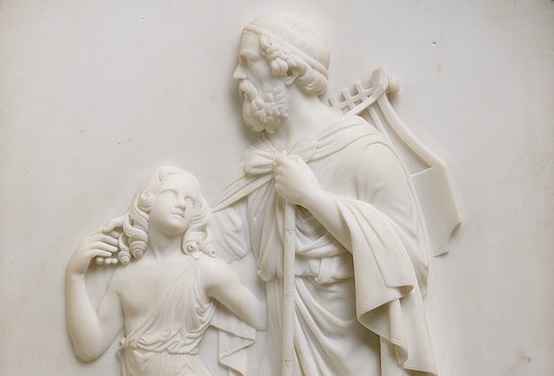The last of the events organised by Living Stones, St Mary the Virgin, Iffley took place on Saturday 8 September, 2.00 – 5.00 Iffley Church Hall OX4 4EG, focussing on how the world changed in the 12th century when Iffley Church was built.
In ‘Encountering the Other: Conflict and connection in 12th-century Europe’, Dr Teresa Witcombe took us on a tour from Oxford to Toledo and back with Daniel of Morley, a scholar whose works are still preserved in the Bodleian Library. This century also saw the first Latin translation of the Qur’an (produced by an Englishman, Robert of Ketton, in the 1140s), and an increasing curiosity about the world beyond the Latin west.
This was followed by a workshop on the spread of secular music with Ian Pittaway; follow him on https://earlymusicmuse.com. Ian presented medieval harp, symphonia, gittern and citole. Playlist:
- 0:04:14 Sainte Nicholaes godes druð (Godric of Finchale, England, died 1170)
- 0:08:49 Cuers desirous apaie = A heart that is yearning (Blondel de Nesle, France, c. 1155–1202)
- 0:17:58 Ce fu en mai = It was in May (Moniot d’Arras, France, fl. c. 1213 – d. 1239)
- 0:23:00 Danse (Manuscrit du roi, France, c. 1300)
- 0:27:57 brid one brere = bird on a briar (anonymous, England, c. 1290)
- 0:34:55 Mirie it is (anonymous, England, c. 1225)
- 0:43:36 Sumer is icumen in (anonymous, England, c. 1250-60) [with audience participation – listen out for the cuckoo!]
- 0:49:25 La seconde Estampie Royal – The second Royal Estampie (Manuscrit du roi, France, c. 1300)
- 0:53:55 untitled estampie (anonymous, England, c. 1270)
- 1:16:16 Edi beo thu heuene queene (anonymous, England, c. 1265–90)
We hope to continue the theme next year with a focus on the symbolism of the architectural features and carvings around the church. Please get in touch if you are interested in sharing your research! For contact details and this year’s programme see https://livingstonesiffley.org.uk/events
Iffley Church was built in the 1160s. Its lavish design and ornamentation clearly express complex ideas that were topical then but which mystify today’s visitors. Living Stones, the church’s education and heritage programme, is exploring the changing world of the building’s patron and parishioners. This year a series of study days focuses on life and scholarship in the twelfth century.
On 18 May 2024, the opening talks focussed on manuscripts from St Frideswide’s Priory and records of pilgrims to St Frideswide’s shrine with Andrew Dunning and Anne Bailey. On 13 July 2024, Emily Winkler presented interpretations of the past, and Stewart Tiley immersed us in book creation: https://livingstonesiffley.org.uk/past-events/f/building-on-the-past-and-writing-for-the-future
The canons of St Frideswide’s Priory relaunched what later became Christ Church Cathedral in the 12th century. The Priory became a locally renowned place of pilgrimage attracting large numbers of women looking for healing for themselves and their families. Surviving miracle stories show the concern that the canons took for local pastoral care, and their efforts to reach equally ‘the rich and the poor, the small with the great’.
Further information on Dr Anne E. Bailey’s work can be found on https://twitter.com/AnneEBailey1 and her publications page. More on the Pilgrimage Study Day on 25 June 2024, co-organised be her, with a keynote address by Andrew Dunning and the Pilgrimage walk along St Frideswide’s Way (26-29 June 2024), a guided walk with prayers and reflection to launch the new pilgrimage route between Oxford and Reading. Led by Dr Anne Bailey, Canon Sally Welch, and Revd Dr Zachary Guiliano. Pilgrims were blessed at the beginning of the journey by the Bishop of Oxford.
Header image: The Norman West porch of St Mary the Virgin, Iffley


